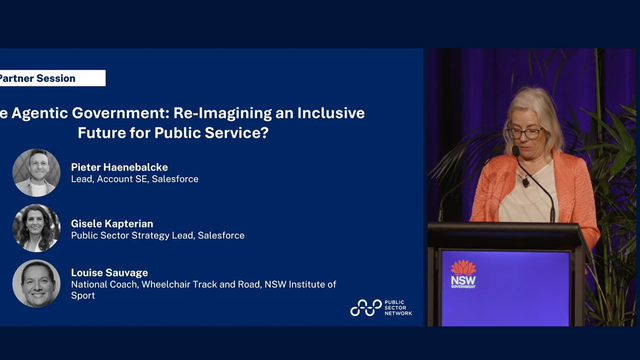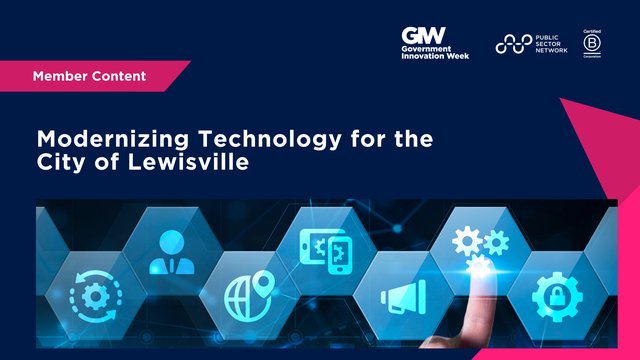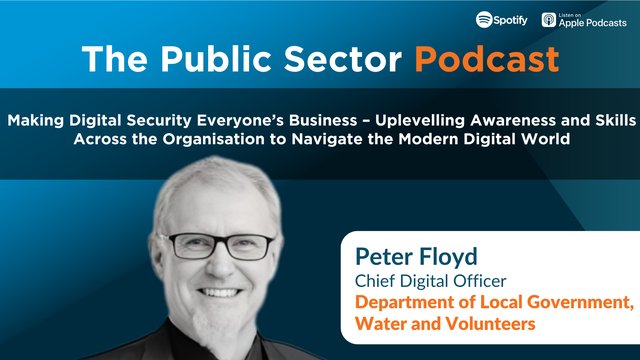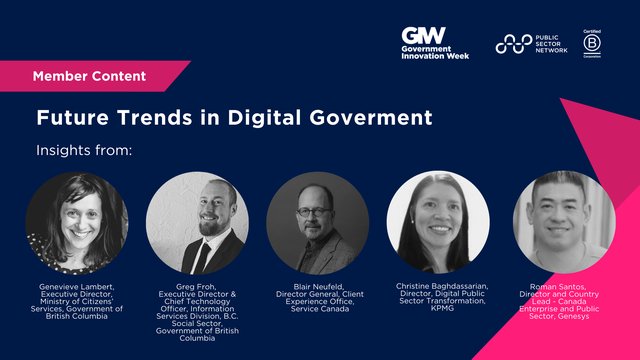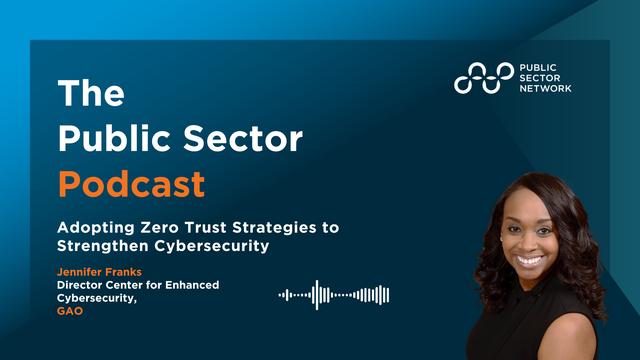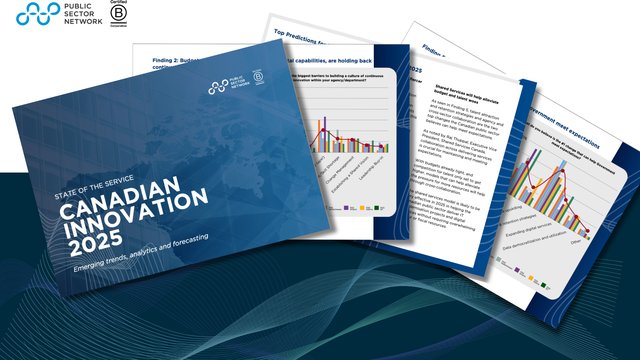
This article covers:
- Trust. What is it and why is it so important?
- Where do Canadians stand when it comes to their trust levels in their government?
- The role of the media in Canada’s trust in government
- The opportunity for the Canadian government to improve trust
- The Challenge to deliver QUALITY and EFFICIENT digital services has citizens’ confidence waning
- How does the Canadian government know where it stands with the public?
- How is this data being used to solve Canada’s trust problem?
- The Path to Trust
Trust. What is it and why is it so important?
Public trust in government means that citizens are willing to accept the potential risks when it comes to the way the government operates but regardless, they hold positive expectations from the institutions and those working within them. It comes with both institutional and interpersonal levels where the public would trust the Prime Minister for example who serves as the face for the institutions and therefor trust in the institutions would be built more easily – not trusting one would inevitably impact trust in the other.
Citizen trust now more than ever has become of paramount importance for the Canadian government. Why? If it’s up, it increases social cohesion and trust between citizens, elevates trust in policy changes and other recommendations the government may have toward its public. If it’s down, the ripple effects can hinder democratic participation, weaken public institutions, slow economic progress as citizen become hesitant to invest in government-backed projects, and divide society when people turn to alternative sources of information, receiving misinformation which further deepens the divide.
Where do Canadians stand when it comes to their trust levels in their government?
- According to the 2024 Edelman Trust Barometer, trust in their government stands at 49% which is a slight decrease from previous years.
- Indigenous peoples trust in government falls into the “Distrust” category at 28%
- Government leaders fall in the “Distrust” category at 43%
- In another 2024 survey, out of the 36% of Canadian respondents that refuse to share more private data, privacy concerns (50%) and lack of trust in how the data is used (44%) and shared (42%) were the key reasons for concern
- In the same survey, 48% of participants highlight security and privacy concerns as their biggest fear in the shift to digital
The Role of the Media in Canada’s Trust in Government
A key player in the process of building or dismantling Canadians’ trust in their government is the media whose influence is extremely powerful by the way it shapes public opinion through the information it shares and how it frames government actions.
- Trust in news media among Canadians fell from 55% in 2016 to 40% in 2023
- A 2023 Statistics Canada report found that 59% of Canadians are very or extremely concerned about online misinformation, with 43% finding it harder to distinguish between true and false information compared to three years prior
- 1/4 of Canadians say that a lot of Canadian news is just “government propaganda”
- Over 70% of Canadians are not very supportive or not supportive at all of government subsidies for the salaries of private news organisations
- Over 3/4 agree that having journalist salaries subsidized by the government impacts objectivity and that when the government funds the news
There are many causes for this unrest at play here, such as the rising inflation and housing affordability issues, recent headlines exposing conflict-of-interest stories involving the Prime Minister, policies which don’t seem to align with what the public needs therefor creating a divide between the public and government, and the noted distrust in Canadian media, all of which are leading to an erosion of trust in government.
The Opportunity for the Canadian Government to IMPROVE Trust
There remains a strong DEMAND for digital government services in Canada:
- 70% of Canadian survey participants in 2024 want the government to deliver a fully digital suite of public services
- 87% of those expect this shift to happen by 2026
This data clearly shows that the Canadian government needs to focus on going digital, making services easier to use, and updating its systems to match what people want. However, if progress is too slow or falls short, it could lead to frustration and make people lose even more confidence in the government’s digital plans.
The Challenge to deliver QUALITY and EFFICIENT digital services has citizens’ confidence waning:
- Another 2024 survey found that each participant polled spent an average of 28 hours engaging government services in the last year.
- 70% cited one or more problems with digital government services, including technical difficulties or issues with signing in, long completion times for tasks, and the inability to find the help they are seeking.
- 29% lack confidence in the government’s capacity to actually deliver digital public services in the near future
- 43% believe the country can’t achieve the same level of digitisation as their private sector counterparts
These results highlight a need for the government to enhance responsiveness and user-friendly design to build public confidence. The Government of Canada’s most recent Digital Ambition release clearly owns up to the major issue hindering streamlined, user-friendly public services - the challenges government faces in establishing new digital services, while managing aging IT systems. So modernising the IT systems is a must-do and must-do as soon as possible, in making government services simpler for those who use and deliver them. This move to modern will surely aid in gaining back some confidence from citizens.
How does the Canadian government know where it stands with the public?
Surveys and Polls: Carried out regularly on a national level, they give a clear picture of what citizens think and how confident they feel in their leaders:
- Confederation of Tomorrow surveys, in circulation since 2019, gauge public trust in the ability of both the federal government and their provincial governments to deal with key issues such as health care, climate change, immigration or the economy.
- The OECD Drivers of Trust survey, a global exploration of citizens' perceptions of public institutions.
- The Canadian Social Survey taken quarterly seeks to understand social issues across a range of topics such as trust in government, justice system, schools etc.
- Public Confidence Indicators: Public confidence is measured through a scale assessing how much confidence individuals have in institutions.
- Edelman Trust Barometer: The annual report provides insights into trust levels across various sectors, including government. It highlights trends in public perception and identifies factors contributing to trust or distrust among Canadians.
Focus Groups: Conducted by organisations like Environics Research, Focus groups explore people’s views on policies and government performance, providing deeper insights into how trust works.
Public Consultations: Engagement initiatives, such as MyDemocracy.ca, gather feedback from citizens on reforms and policies to get a sense of public opinion and trust.
Social Media Analysis: Monitoring platforms like Twitter and Facebook allows the government to assess public reactions and trust levels in real-time, identifying emerging issues and sentiments.
How is this data being used to solve Canada’s trust problem?
Where are we at now? At this stage, the Canadian government has used these metrics and tools to gain valuable insights into public trust. The data highlights that while progress has been made, there’s still work to do before the public fully trusts its leaders and the digital solutions provided. Acknowledging the low or declining trust levels, the government has taken decisive steps to implement the following measures aimed at rebuilding and strengthening public confidence.
A Focus on Transparency & Accountability:
- The Trust and Transparency Strategy is aimed at reinforcing public trust in federal institutions. This strategy includes core principles such as transparency, accountability, and participation to enhance citizen trust in government operations. The commitment to make it easier for citizens to hold the government accountable which is vital for fostering trust.
- To ensure accountability, the government plans to publish an annual report detailing the implementation of the Trust and Transparency Strategy. This report will provide insights into progress made and areas for improvement
- The National Security Transparency Advisory Group (NS-TAG), launched in 2019, works with Canada’s national security and intelligence teams to make their policies and programs more open and accountable to the public. While secrecy has always been the norm in this field, there’s a growing push to break away from that mindset. When governments don’t share enough, misinformation steps in to fill the gap, making transparency more important than ever.
Open government initiatives:
The government has fully invested its participation in the Open Government Partnership and within it, continues to advance its Open Government Action Plan, which includes commitments to make data and information more accessible to Canadians. This initiative seeks to increase transparency and allow citizens to influence policymaking.
Combating misinformation:
Recognising the impact of misinformation on public trust, the government is implementing measures to promote accurate information dissemination and counteract false narratives.
- Digital Citizen Initiative (DCI): Launched in 2019, the DCI supports democracy and social inclusion by building citizens' resilience against online disinformation and fostering a healthy information ecosystem.
- International Collaboration: Canada collaborates with international partners to expose and counter foreign disinformation campaigns, particularly those targeting democratic processes. G7 Rapid Response Mechanism (RRM): enhances coordination among G7 countries to identify and respond to foreign threats to democracy, including state-sponsored disinformation. Canada leads the RRM Secretariat, facilitating information sharing and joint responses to disinformation activities. Canada collaborates with entities like the European External Action Service's East StratCom Task Force, which focuses on countering disinformation.
- Support for Research and Civil Society: Through funding programs, the government supports organisations and researchers working to understand and mitigate the impact of misinformation on society.
Updating Legacy Systems:
The Canadian government is updating outdated systems to make services faster, more reliable, and easier for citizens to access. By modernizing IT infrastructure and improving security, the government is working to strengthen public confidence in its digital capabilities.:
- An updated Strategic Vision for 2024-2027 has been set, designed to amplify Canadian Digital Service's role in achieving a unified vision for government services and this effort marks a key milestone in reshaping and driving service transformation.
- Projects like the Next Generation HR and Pay System are focused on fixing long-standing issues and ensuring smoother service delivery.
- Implementation of new security measures to ensure the digital integrity of services
The Path to Trust
It’s clear that the Canadian government is actively working to strengthen public trust through greater transparency, modernising outdated systems, enhancing cybersecurity and fostering citizen engagement. Survey and poll data show us that challenges remain when we observe the current sluggish economic growth and when it comes to leadership with shifting voter sentiments. We've also seen the government struggling to maintain proper data security while combating the distrust in government that misinformation has caused. But the efforts to build and rebuild trust with Canadian citizens reflect that the government recognises the need for public trust to battle through these obstacles.


